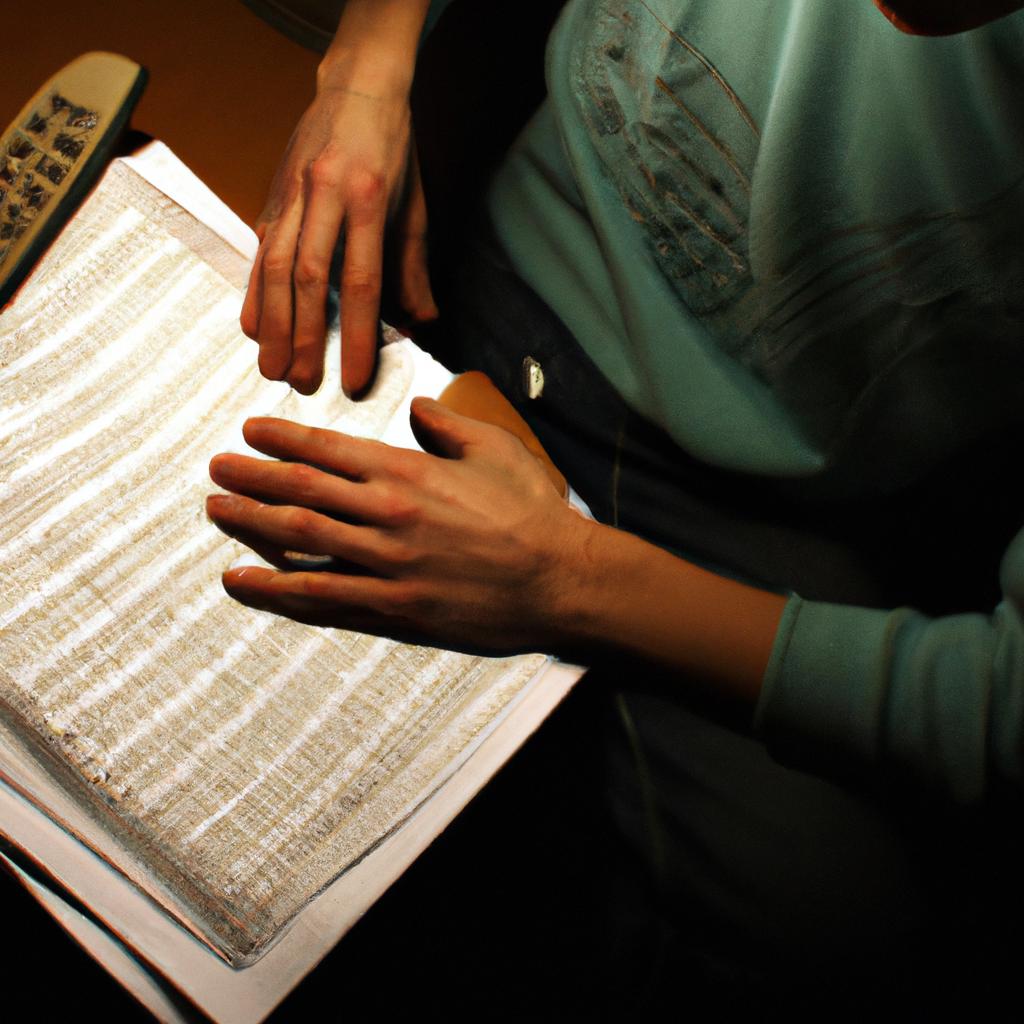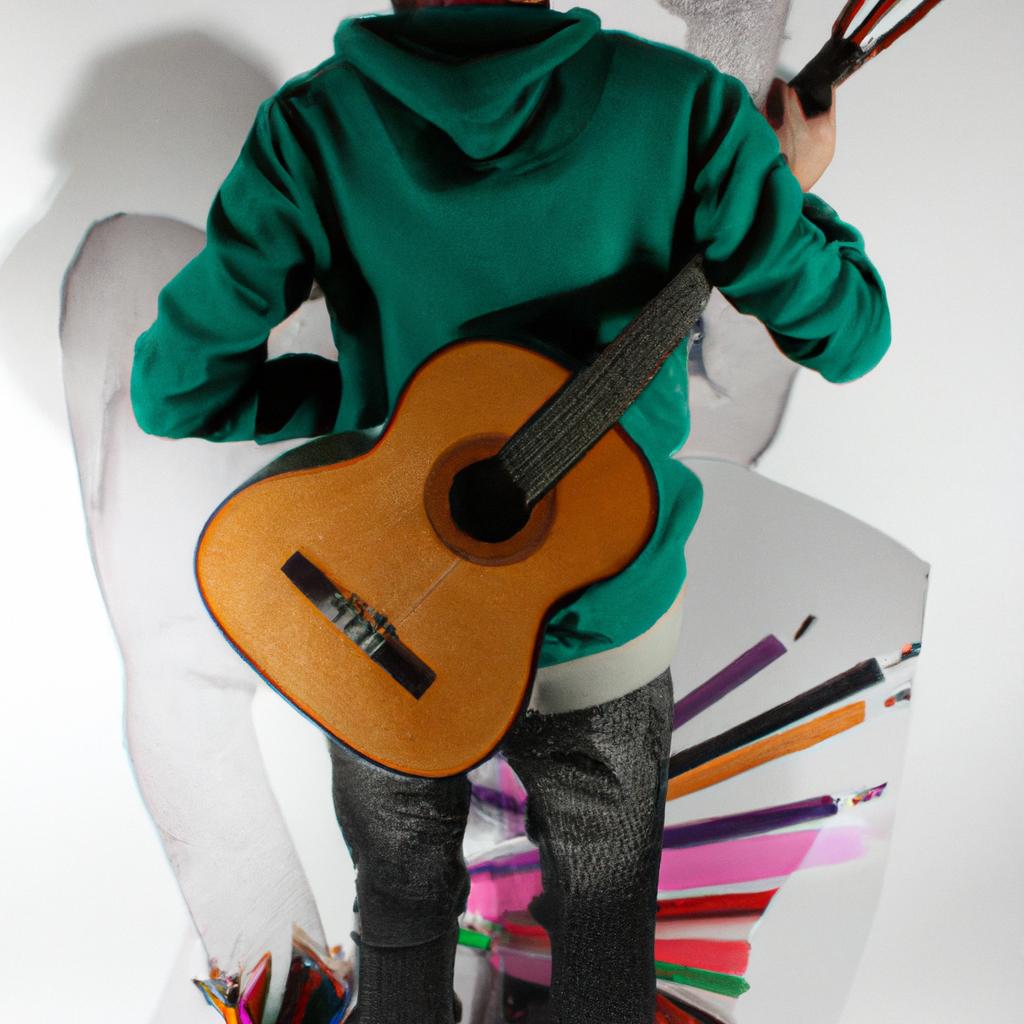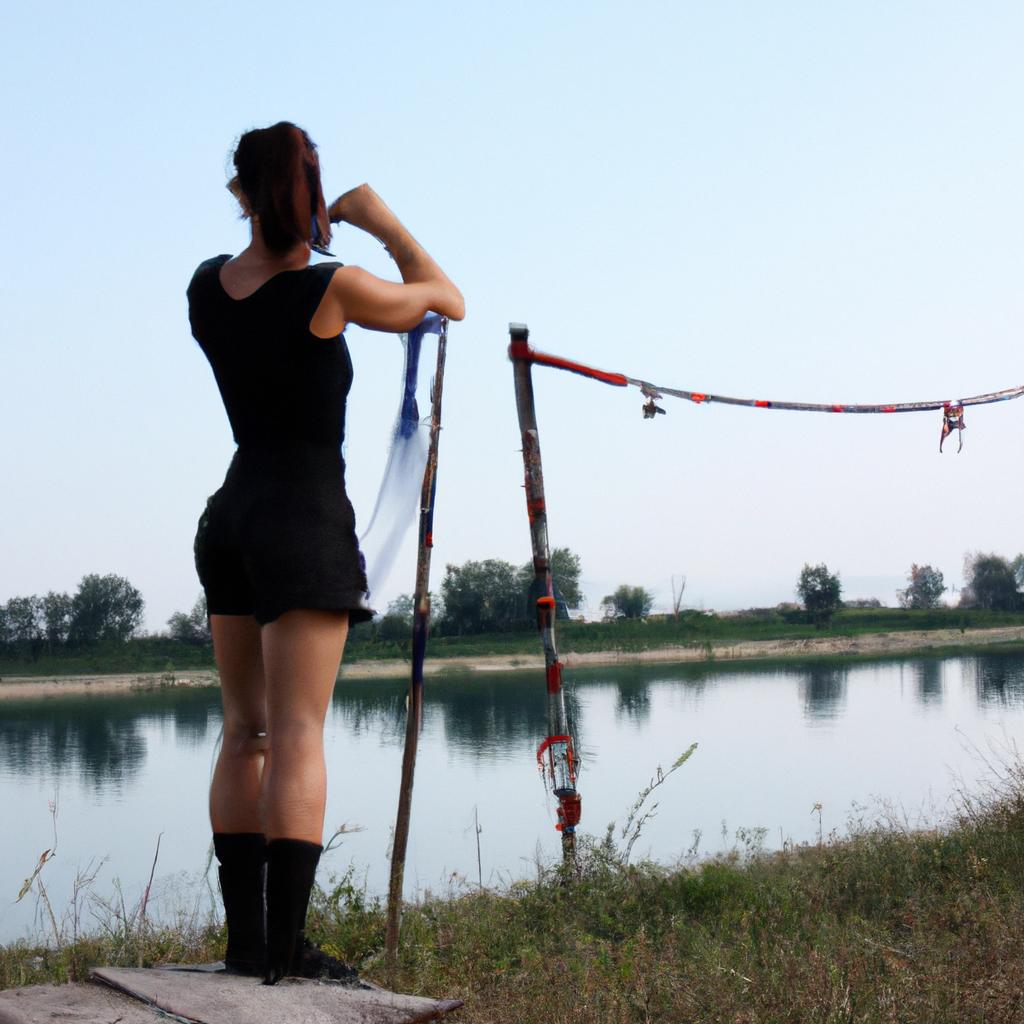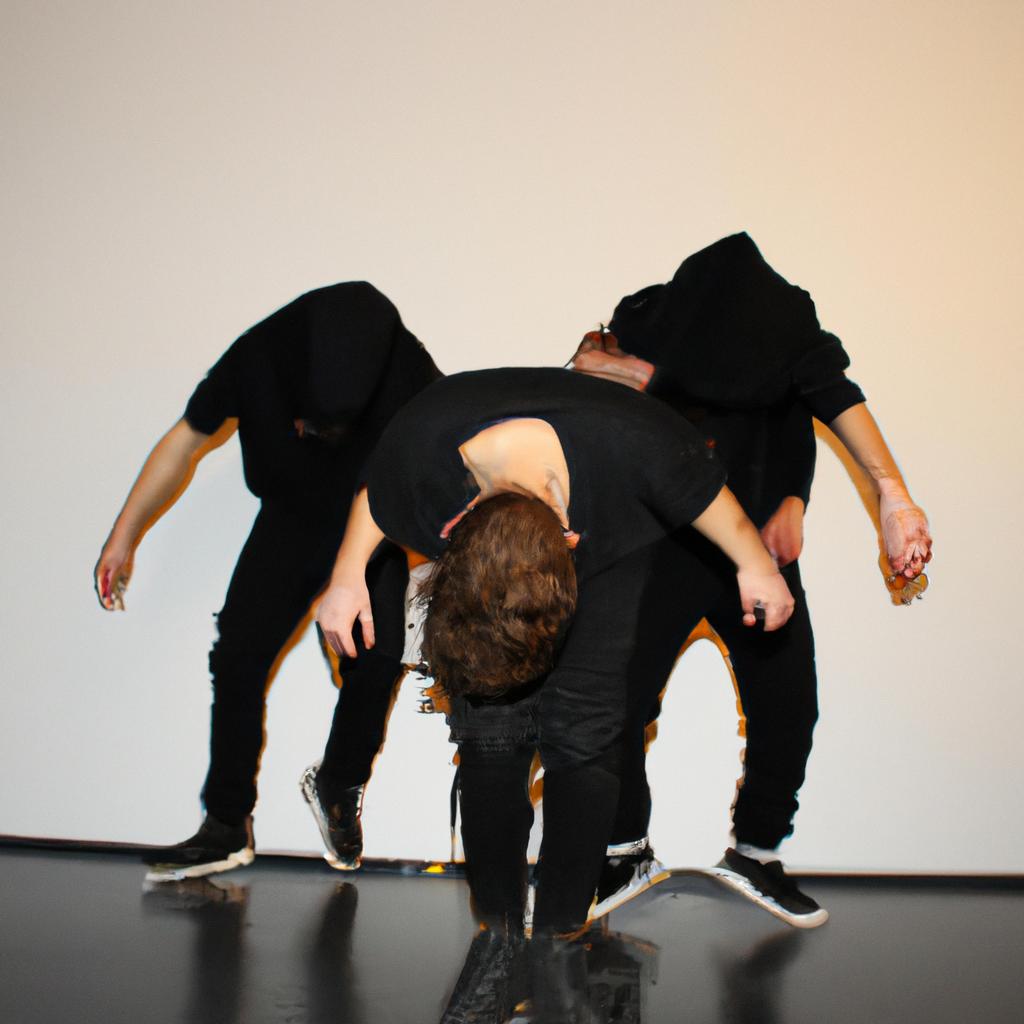The realm of creative writing contests has evolved as a platform for individuals to unleash their artistic talents, transcending boundaries and providing opportunities for expression. Through the fusion of music and arts, these contests offer a unique avenue for participants to showcase their creativity in captivating ways. For instance, imagine an aspiring poet who intertwines his words with the melody of a hauntingly beautiful piano composition. This harmonious blend not only captivates the audience but also serves as a testament to the power of artistic collaboration.
In recent years, creative writing contests have gained significant attention due to their ability to foster creativity in various art forms. The integration of music and other artistic mediums elevates the contest experience by allowing participants to explore new dimensions in storytelling. By combining different art forms, contestants can create immersive narratives that resonate deeply with audiences, evoking emotions that transcend traditional literary boundaries. Such endeavors not only push the boundaries of individual creativity but also cultivate a sense of community among artists who share a common passion for creative expression through music and arts.
Benefits of Participating in Creative Writing Contests
Participating in creative writing contests offers numerous benefits that can enhance one’s artistic talent and provide a platform for expression. These contests not only allow writers to showcase their skills but also enable them to receive valuable feedback from professionals in the field. By engaging with other writers and experts, participants have the opportunity to learn, grow, and refine their craft.
One example of how participating in creative writing contests can be beneficial is through the case study of Jane, an aspiring writer who entered a contest for short stories. Through this experience, Jane was able to receive constructive criticism on her work, which helped her identify areas where she could improve. The feedback provided by experienced judges allowed her to gain new insights into her writing style, character development, and plot structure. Armed with this knowledge, Jane was motivated to revise her story and ultimately won third place in the competition. This achievement boosted her confidence as a writer and encouraged her to continue honing her skills.
The benefits of participating in creative writing contests extend beyond individual growth and recognition. They foster a sense of community among writers and create opportunities for collaboration. Engaging with fellow participants allows writers to exchange ideas, discuss techniques, and inspire one another. Such interactions often result in meaningful connections within the literary world and may even lead to mentorship or publishing opportunities.
To emphasize further the advantages of entering these contests, consider the following emotional responses:
- Fulfillment: Participants feel a sense of fulfillment upon completing their written works.
- Motivation: The competitive nature of contests ignites motivation within individuals striving for excellence.
- Validation: Recognition received through awards or positive feedback validates participants’ talents and hard work.
- Connection: Collaborative experiences foster connection among like-minded individuals.
Additionally, we can visualize some key benefits using a table format:
| Benefit | Description |
|---|---|
| Personal Growth | Contest participation enables personal growth through |
| constructive feedback and self-reflection. | |
| Networking | Writers can connect with peers, mentors, and professionals |
| in the literary field, opening doors for future | |
| collaborations or publishing opportunities. | |
| Recognition | Entering contests allows writers to receive recognition |
| for their skills and hard work. |
In conclusion, participating in creative writing contests offers a multitude of benefits ranging from individual growth to community connection. By receiving valuable feedback, engaging with fellow writers, and gaining recognition, participants can enhance their artistic talent and fuel their passion for writing. The next section will explore how music intertwines with creative writing, further enriching the artistic experience.
Now let’s transition into the subsequent section about “Exploring the Intersection of Music and Creative Writing.”
Exploring the Intersection of Music and Creative Writing
The intersection between music and creative writing offers a unique platform for artists to express themselves through multiple art forms. By combining the power of words and melodies, individuals can create vivid narratives that captivate audiences in profound ways. This section will delve into how music enhances the creative writing process, leading to innovative storytelling techniques.
To illustrate this point, let us consider a hypothetical scenario where an aspiring writer participates in a creative writing contest centered around music. Inspired by a melancholic melody, the writer crafts a story that portrays the emotional journey of a protagonist who navigates heartbreak and self-discovery. The use of descriptive language combined with musical elements such as rhythm and tempo creates an immersive experience for readers, allowing them to feel the same emotions evoked by both the lyrics and prose.
When exploring the connection between music and creative writing, several key aspects come to light:
- Emotional resonance: Music has the ability to evoke strong emotions within listeners, and when integrated into creative writing, it amplifies these feelings by providing another layer of sensory stimulation.
- Enhanced storytelling: Incorporating musical elements enables writers to establish atmosphere, pace, and tone more effectively. It adds depth to characters’ experiences and strengthens their development throughout the narrative.
- Unique perspectives: Exploring different genres or styles of music opens doors to new ideas and inspirations for writers. Each genre carries its own set of themes and moods which can be explored in diverse ways through written narratives.
- Audience engagement: Music captures attention instantaneously; similarly, integrating it into written works not only grabs readers’ interest but also allows them to connect on an emotional level with the story being told.
In summary, incorporating music into creative writing contests presents exciting opportunities for authors seeking innovative approaches. By infusing stories with melodic inspiration, writers can enhance their narratives’ impact while creating immersive experiences for readers. In our next section about “Tips for Crafting Engaging and Original Stories,” we will delve into practical strategies to assist aspiring writers in harnessing the power of music and other creative elements.
Tips for Crafting Engaging and Original Stories
The intersection between music and creative writing offers a captivating platform for artists to unleash their artistic talent. By incorporating elements of music into their storytelling, writers can create immersive experiences that captivate readers on a deeper emotional level. For instance, imagine a short story where the protagonist’s journey is depicted through vivid descriptions of melodies that mirror their emotions at each turning point.
To fully understand how music enhances creative writing, let us delve into some key ways in which these two art forms intersect:
-
Setting the Mood: Just as background music can enhance the atmosphere in films or theater, carefully selected soundtracks can set the tone for written narratives. By choosing specific genres or songs that align with the desired mood of a scene, writers can heighten tension, evoke nostalgia, or convey joy more effectively.
-
Enhancing Characterization: Music has an innate ability to express complex emotions without relying solely on words. Similarly, by integrating musical references into character development, writers can add depth and nuance to their fictional creations. Whether it be through a character’s favorite song or their unique way of playing an instrument, these details provide valuable insights into who they are as individuals.
-
Creating Rhythm and Flow: Much like lyrics follow rhythmic patterns in songs, skilled writers employ various literary techniques to establish rhythm and flow within their prose. This allows readers to experience the narrative’s cadence almost subconsciously while immersing themselves further into the story.
-
Evoking Sensory Imagery: The power of sensory imagery lies in its ability to transport readers beyond mere words on a page. When combined with evocative descriptions of sounds and melodies, writers can forge an even stronger connection between reader and narrative world.
By harnessing these intersections between music and creative writing, artists have unlocked new avenues for self-expression and audience engagement alike.
How to Choose the Right Creative Writing Contest
Unleashing artistic talent through music and arts is not limited to traditional forms of expression. Creative writing contests provide a platform for individuals to showcase their unique storytelling abilities, fostering creativity and encouraging the exploration of diverse themes. By participating in these contests, writers can gain exposure, receive recognition, and even win prizes that further fuel their passion for writing.
For instance, imagine a budding writer named Emily who decides to enter a creative writing contest focused on science fiction. With her vivid imagination and skillful wordplay, she crafts an engaging story set in a futuristic world where humans coexist with artificial intelligence. Through this contest, Emily not only has the opportunity to share her imaginative ideas but also receives valuable feedback from experienced judges and fellow participants.
To assist aspiring writers in selecting the right creative writing contest, consider the following:
- Theme: Evaluate whether the contest aligns with your interests and strengths as a writer. Choosing a theme that resonates with you will enable you to produce authentic and compelling work.
- Submission Guidelines: Pay careful attention to the guidelines provided by each contest. Ensure that you understand the word count limitations, formatting requirements, and submission deadlines.
- Entry Fee: Some contests may require an entry fee while others are free to participate in. Consider your budgetary constraints before deciding which contests are feasible for you.
- Prizes and Recognition: Research what prizes or opportunities winners of past contests have received. This information can help gauge potential benefits such as publication opportunities or monetary rewards.
By considering these factors when choosing a creative writing contest, writers can maximize their chances of finding a competition that suits their preferences and goals.
In summary, creative writing contests serve as catalysts for unleashing artistic talent by providing platforms for writers to express themselves creatively. These competitions foster growth among participants through constructive feedback from judges and peers alike. Selecting the right contest involves evaluating themes, adhering to submission guidelines, considering entry fees, and assessing potential rewards. By taking these factors into account, writers can embark on a fulfilling journey of self-expression and exploration.
Transitioning to the subsequent section about “The Role of Judges in Evaluating Contest Entries,” it is essential to understand how judges play a crucial role in shaping the outcome of creative writing contests.
The Role of Judges in Evaluating Contest Entries
Unleashing Artistic Talent through Music and Arts
In the previous section, we explored how to choose the right creative writing contest. Now, let us delve into the crucial role that judges play in evaluating contest entries.
To understand the significance of judges in a creative writing contest, consider this example: Imagine a national competition where participants are required to submit their best short stories. The submissions range from heartfelt tales of love and loss to gripping narratives filled with suspense and mystery. However, without experienced judges who possess an astute understanding of literary elements and storytelling techniques, it would be challenging to determine the winners objectively.
The evaluation process conducted by judges involves careful consideration of various criteria such as originality, clarity, coherence, character development, plot structure, and overall impact on readers. To ensure fairness and impartiality, judges often follow specific guidelines provided by organizers or institutions hosting the contest. They meticulously review each entry and assign scores based on established rubrics tailored to assess different aspects of writing quality.
The Role of Judges in Evaluating Contest Entries:
- Assessing creativity: Judges evaluate how well contestants have demonstrated their unique perspective or innovative approach within their written work.
- Analyzing technical proficiency: Judges examine contestants’ command over grammar rules, vocabulary usage, sentence structure, punctuation accuracy, and other language-related skills.
- Considering thematic relevance: Judges look for entries that effectively convey themes relevant to the given prompt or topic while maintaining consistency throughout the piece.
- Gauging emotional impact: Judges seek writings that evoke strong emotions within readers—eliciting joy, sadness, fear, empathy—to create lasting impressions.
These factors collectively contribute to identifying exceptional talent among emerging writers who participate in these contests. By adhering to rigorous assessment methods guided by experienced judges’ expertise in literature and composition analysis, creative writing contests can provide aspiring authors with valuable feedback aimed at improving their craft.
Transitioning into “Inspiring Success Stories from Past Contest Winners,” it is evident that the involvement of judges plays a vital role in uncovering hidden gems and recognizing artistic brilliance.
Inspiring Success Stories from Past Contest Winners
As we delve further into the realm of creative writing contests, it becomes evident that these competitions possess a unique ability to unleash artistic talent through various mediums. One notable example is the connection between music and arts in fostering creativity among participants. By incorporating musical elements into written works or encouraging participants to explore different art forms alongside their writing, contests can provide an immersive experience that transcends traditional boundaries.
In order to fully grasp the impact of such contests, let us examine four key reasons why this integration of music and arts plays a pivotal role:
-
Enhanced Expressiveness: Combining music and arts with creative writing allows individuals to tap into different senses simultaneously. The harmonious blend of visual imagery, melodious sounds, and literary prowess enables contestants to create more vivid and emotionally charged narratives.
-
Expanded Perspective: Engaging with diverse art forms broadens one’s horizons by exposing them to new ideas and perspectives. Through exploring other artistic realms beyond writing alone, contest participants gain fresh insights that enhance their own creativity and storytelling abilities.
-
Collaborative Opportunities: Integrating music and arts within creative writing contests opens doors for potential collaborations between writers, musicians, and artists. This fosters interdisciplinary connections where individuals from different fields come together to produce truly remarkable pieces that showcase collective talents.
-
Audience Engagement: By incorporating multiple art forms into creative writing contests, organizers are able to captivate a wider audience base. A well-executed combination of literature, visuals, and sound can evoke powerful emotions in readers or viewers, leaving a lasting impression on their minds.
To illustrate the significance of integrating music and arts within creative writing contests further, consider the following table showcasing examples of successful collaborative projects:
| Contest | Collaboration | Result |
|---|---|---|
| Poetry Competition | Poets + Musicians | Spoken word performances accompanied by live music, creating a dynamic and immersive experience for the audience |
| Short Story Contest | Writers + Visual Artists | Artwork inspired by selected short stories exhibited alongside written works, enhancing readers’ understanding of the narratives |
| Essay Competition | Essayists + Dancers | Interpretative dance performances based on essays, visually conveying complex ideas and emotions to viewers |
| Flash Fiction Challenge | Writers + Filmmakers | Selected flash fiction pieces adapted into short films, combining cinematic storytelling with literary excellence |
Through these collaborative projects, creative writing contests that incorporate music and arts can transcend traditional boundaries and ignite a sense of wonder in both participants and audiences alike.
In light of this exploration into the powerful integration of music and arts within creative writing contests, it becomes increasingly clear how such competitions unleash artistic talent through their multi-dimensional approach. The following section will delve deeper into inspiring success stories from past contest winners who have harnessed this fusion of mediums to create exceptional works. Stay tuned as we embark upon an enlightening journey showcasing the transformative power of creative expression!





